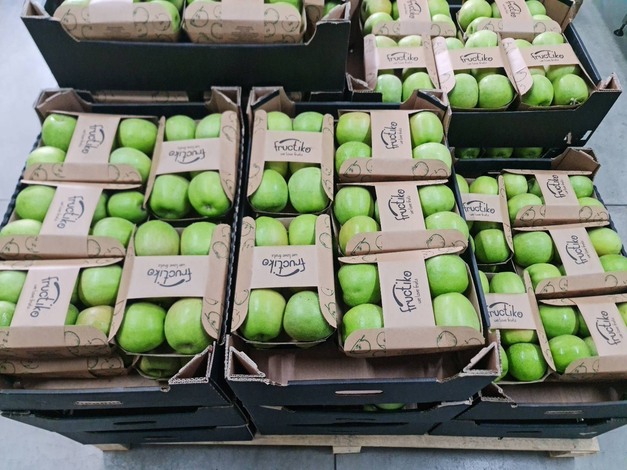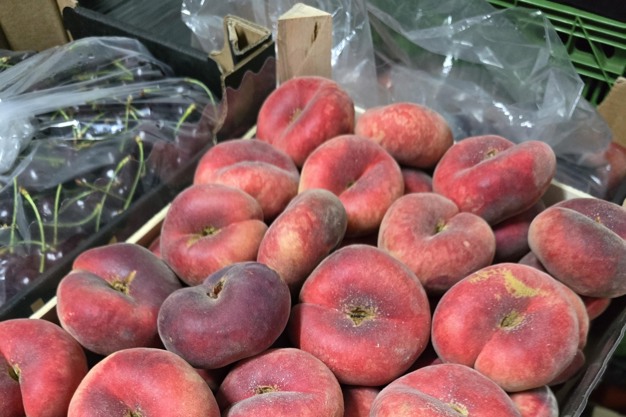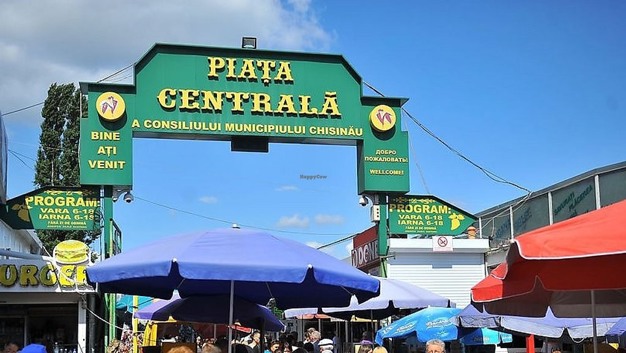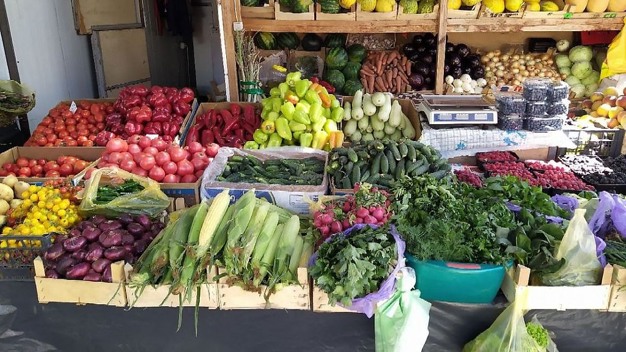Only 10% of fruit and vegetables harvested in Moldova are destined for local consumption. That says two things about the country: how extensive the fresh produce sector is and how small the population (about 2.5 million inhabitants). In the Moldova series published in the previous weeks, we wrote about growers and exporters focusing on the EU market. This time, it's about the domestic market. Marian Gorincioi of fruit and vegetable distributor Danam Prim lays things out for us.
Marian Gorincioi with Moldovan fruit and vegetable distributor Danam Prim
In 2009, he and a partner planted an apple orchard, establishing Farm Prod, a company that grows, stores, sorts, packages and sells fruit. In addition to exports, they started marketing their fruit to local supermarket chains in 2014, and to establish a solid position in the local market, Marian Gorincioi decided to set up a distribution company. He purchased several small trucks and moved into a space with cold storage and packing facilities.

Six apples in a tray packed by Danam Prim
A regular at Linella
Ten years later, Danam Prim is one of the regular suppliers of the Moldovan supermarket chains Linella. The Linella distribution center is a mere 500m from the Danam Prim building. "That's obviously very convenient for us," begins Marian. "Not all our products pass through our warehouse, though. Sometimes, the fruit is loaded in the orchard, and pallets of loose product are delivered directly to Linella's DC. But when a retailer requests pre-packaged products, say, six apples in a tray, our machines run at full speed, and it's busy. Sorting and packing are still done manually."
Along with own-grown fruit - apples, plums, peaches, nectarines, cherries and grapes - Danam Prim sources produce, like Paraguayo peaches and butternut squash, from several medium to large-scale growers. Marian prefers not to deal with small-scale growers. "They don't have the volumes, and their quality isn't always consistent either. That's due to inadequate growing methods or lack of storage facilities," he says.
Most of Marian's company's clients are retailers with stores in and around the capital. He adds that both volume and price-wise, hospitality and wholesale outlets are less attractive. Besides Linella, Danam Prim also delivers to Nr.1, Metro, Pegas, Ferma cu Origini, Local and some smaller chains. Those are daily, direct deliveries to the various outlets.

Paraguayo peaches are increasingly common in Moldovan stores
Prefer local products
The distributor has its hands full as Moldovan retailers prefer local produce. "There are, of course, three conditions to this: good quality, a constant supply, and a competitive price. For example, although peaches are grown in Moldova, neither quality nor supply are always guaranteed. That's remedied with imports from Greece or Turkey. You don't see Polish apples, but you can't rule that out entirely, especially if growers here were to raise their prices so much that the Polish product becomes cheaper."
Danam Prim does not only supply retailers; work fruit accounts for five percent of its sales. "We deliver that loose in boxes. At Easter and Christmas, we change the design of our packages a little to please our customers and congratulate them on these holidays," says Gorincioi.
Trends
In the company's decade-long history, he has been privy to the sharp rise in Paraguayo peaches' popularity. "Those were non-existent in Moldova in 2014. Now, they're unmissable on store shelves in season. Platerinas have also been gaining ground in recent years. And apples are a keeper, their popularity remains undiminished after all these years."

The entrance to the biggest open market in Chisinau
Another evolution in the Moldovan fruit and vegetable landscape is retailers' breaking through as sales points. "Ten years ago, people living in the capital would buy 80% of their fresh produce at one of Chisinau's covered markets. By now, that's split 30/70 with retail stores, with 70% for the supermarkets," says Marian. "Contrary to what you might think, supermarket fruits and vegetables aren't more expensive. Products in covered markets enjoy an advantage in image and shopping habits, though. People see them as natural because they come directly from small-scale growers."

Fruits and vegetables at a stand of the open market in Chisinau
Also, you are not allowed to touch the fruit in the markets. "The vendor packages it for you. In the supermarket, it's different. There, you sometimes see fruit or vegetables that don't look so great. I'm talking about the loose, non-prepacked products. Those aren't always necessarily inferior quality, but it's because shoppers have repeatedly picked them up and put them back. A little more respect for food and other people's work would be welcome," Marian concludes.
For more information:
Marian Gorincioi (Director)
Danam Prim Ltd
Chişinău, str. Kiev, 1/3 (Moldova)
Mob: +373 69 107 777
[email protected]
